 January 21, 2019. One of our
students, Kenneth Salmon,
producer and director of the
production “Paper
to Stage,” has stated
that the most effective
way to teach is to
make learning enjoyable.
For the past 22
years, Kenneth has
been doing that by teaching
CSEC literature to hundreds
of students annually with a
two-hour production that
dramatizes the texts of the
syllabus, which over the years,
has received positive feedback from teachers and students.
The 2018-19 series of the
production “Paper to Stage”
was launched recently
in the Coke Methodist
Church auditorium
in Jamaica. Kenneth’s
presentations will
resume this month and
continue until April.
The production will be taken
to every parish, and he also
plans to have a workshop with
teachers on the new literature
(English B) syllabus scheduled
for the new school year in
September. There’s a new set of books every three years,
and he reformats his production
to suit them.
Kenneth is currently completing
a Doctorate program in
Education at Atlantic International
University.
January 21, 2019. One of our
students, Kenneth Salmon,
producer and director of the
production “Paper
to Stage,” has stated
that the most effective
way to teach is to
make learning enjoyable.
For the past 22
years, Kenneth has
been doing that by teaching
CSEC literature to hundreds
of students annually with a
two-hour production that
dramatizes the texts of the
syllabus, which over the years,
has received positive feedback from teachers and students.
The 2018-19 series of the
production “Paper to Stage”
was launched recently
in the Coke Methodist
Church auditorium
in Jamaica. Kenneth’s
presentations will
resume this month and
continue until April.
The production will be taken
to every parish, and he also
plans to have a workshop with
teachers on the new literature
(English B) syllabus scheduled
for the new school year in
September. There’s a new set of books every three years,
and he reformats his production
to suit them.
Kenneth is currently completing
a Doctorate program in
Education at Atlantic International
University.
 January 29,
2019. One of
our students,
Héctor J. Mejía,
has published
a book titled
“General Ledger”, which was
published in collaboration with
his colleagues: Rubén Hernández,
Franklin Fernández
and Pablo Valdez. The book
presents practical cases and
seeks that in its five chapters
the reader acquires the necessary
knowledge of accounting,
where they are treated, among
other topics; the accounting equation, elements, accounting
cycle, transaction, accounts,
General Journal, classification
of quotas, financial statements,
known service companies and
manufacturing.
Héctor is currently studying
a Doctorate program in
Finance at Atlantic International
University.
January 29,
2019. One of
our students,
Héctor J. Mejía,
has published
a book titled
“General Ledger”, which was
published in collaboration with
his colleagues: Rubén Hernández,
Franklin Fernández
and Pablo Valdez. The book
presents practical cases and
seeks that in its five chapters
the reader acquires the necessary
knowledge of accounting,
where they are treated, among
other topics; the accounting equation, elements, accounting
cycle, transaction, accounts,
General Journal, classification
of quotas, financial statements,
known service companies and
manufacturing.
Héctor is currently studying
a Doctorate program in
Finance at Atlantic International
University.
 February 5, 2019. One of
our graduates, Angel
Maria De Leon, has
published a book
titled: The Holocaust
of Slave Trade from
Africa to Hispaniola
(El Holocausto del
Tráfico de Esclavos de
África a la Española) and it is
available on Amazon. You can
find it on the following link:
https://www.amazon.com/
Holocausto-Tr%C3%A1fico-Esclavos-
Espa%C3%B1ola-Spanish/
dp/9945092049
This is an overview of the
book: “The United Nations (UN) has established the ‘Black
Holocaust’ as the
greatest crime and
crime of humanity,
the role against the
black race in Africa,
establishing a system
based on slave labor
and whose aftermath
still persists after five Centuries,
by discrimination and
social exclusion. Our country,
the Spanish island, Christopher
Columbus, the center
of Traffic and trade of slaves
brought from Africa, abducted
from their communities by the
midst of violence and terror.” Angel Maria De Leon completed
a Doctorate program in
Political Science at Atlantic
International University.
February 5, 2019. One of
our graduates, Angel
Maria De Leon, has
published a book
titled: The Holocaust
of Slave Trade from
Africa to Hispaniola
(El Holocausto del
Tráfico de Esclavos de
África a la Española) and it is
available on Amazon. You can
find it on the following link:
https://www.amazon.com/
Holocausto-Tr%C3%A1fico-Esclavos-
Espa%C3%B1ola-Spanish/
dp/9945092049
This is an overview of the
book: “The United Nations (UN) has established the ‘Black
Holocaust’ as the
greatest crime and
crime of humanity,
the role against the
black race in Africa,
establishing a system
based on slave labor
and whose aftermath
still persists after five Centuries,
by discrimination and
social exclusion. Our country,
the Spanish island, Christopher
Columbus, the center
of Traffic and trade of slaves
brought from Africa, abducted
from their communities by the
midst of violence and terror.” Angel Maria De Leon completed
a Doctorate program in
Political Science at Atlantic
International University.
 February, 2019.
This graduate
student completed
the majority of the
requirements to
obtain honors, which
included a 4.0 GPA,
published works,
recommendation
from his advisors,
patent a product, etc.
Congratulations!
February, 2019.
This graduate
student completed
the majority of the
requirements to
obtain honors, which
included a 4.0 GPA,
published works,
recommendation
from his advisors,
patent a product, etc.
Congratulations! Call for Papers
This Conference will be held
16–17 April 2019 at Pryzbyla
Center, The Catholic University
of America, Washington,
DC, USA.
We invite proposals for paper
presentations, workshops/
interactive sessions, posters/
exhibits, colloquia, innovation
showcases, virtual posters, or
virtual lightning talks.
The conference features research
addressing the annual
themes and the 2019 Special
Focus: “Coastal Resilience.”
Theme 1: Scientific Evidence
and Sustainability
Theme 2: Assessing Impacts
in Divergent Ecosystems Theme 3: Human Impacts
and Impacts on Humans
Theme 4: Technical, Political,
and Social Responses
Become a Presenter:
1. Submit a proposal
2. Review timeline
3. Register
Late Proposal Deadline
16 March 2019
Regular Registration Deadline
16 March 2019
Late Registration Deadline
16 April 2019
Visit the website:
https://on-climate.com
Call for Papers
This Conference will be held
16–17 April 2019 at Pryzbyla
Center, The Catholic University
of America, Washington,
DC, USA.
We invite proposals for paper
presentations, workshops/
interactive sessions, posters/
exhibits, colloquia, innovation
showcases, virtual posters, or
virtual lightning talks.
The conference features research
addressing the annual
themes and the 2019 Special
Focus: “Coastal Resilience.”
Theme 1: Scientific Evidence
and Sustainability
Theme 2: Assessing Impacts
in Divergent Ecosystems Theme 3: Human Impacts
and Impacts on Humans
Theme 4: Technical, Political,
and Social Responses
Become a Presenter:
1. Submit a proposal
2. Review timeline
3. Register
Late Proposal Deadline
16 March 2019
Regular Registration Deadline
16 March 2019
Late Registration Deadline
16 April 2019
Visit the website:
https://on-climate.com
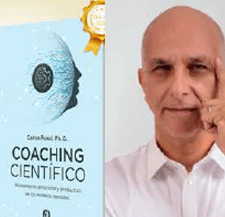 February
12, 2019.
One of our
graduates,
Dr. Carlos
Rossi, has
published
a book
titled,
“Scientific
Coaching” (Coaching Científico).
The book launch will be
in May, in Buenos Aires at the
45 International Book Fair, the
first in Latin America.
Book Summary: Critical
analysis of current Coaching,
based on real cases • New
proposals and adjustments
to increase the credibility
and confidence in the servic
• Presentation of scientific
Coaching after 10 years of application
and its effectiveness
based on results obtained in
different business lines and
organizational levels. Dr. Carlos
Rossi
completed
a
PhD in
Education
and another
PhD
in Human
Resources
at AIU.
February
12, 2019.
One of our
graduates,
Dr. Carlos
Rossi, has
published
a book
titled,
“Scientific
Coaching” (Coaching Científico).
The book launch will be
in May, in Buenos Aires at the
45 International Book Fair, the
first in Latin America.
Book Summary: Critical
analysis of current Coaching,
based on real cases • New
proposals and adjustments
to increase the credibility
and confidence in the servic
• Presentation of scientific
Coaching after 10 years of application
and its effectiveness
based on results obtained in
different business lines and
organizational levels. Dr. Carlos
Rossi
completed
a
PhD in
Education
and another
PhD
in Human
Resources
at AIU.
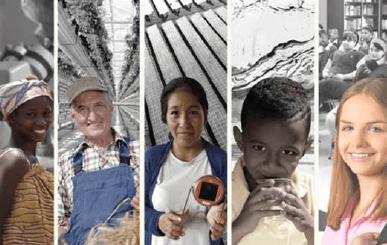 Calling global sustainability
pioneers
The Zayed Sustainability
Prize, an evolution of the Zayed
Future Energy Prize, is the
UAE’s pioneering global award
in sustainability and a tribute
to the legacy of the late founding
father of the UAE, Sheikh
Zayed bin Sultan Al Nahyan.
Established in 2008, this
annual award recognises and
rewards the achievements of
those who are driving impactful,
innovative and inspiring
sustainability solutions
across five distinct categories:
Health, Food, Energy, Water
and Global High Schools (1
award for each of the following
region: The Americas / Sub-Saharan Afric / Middle
East & North Africa / Europe
& Central Asia / South Asia /
East Asia & Pacific
Submisions close 30 May 2019.
Interested applicants should
submit using the online submissions
portal.
There are no fees associated
with completing a submission.
Each applicant or entity
may enter in more than one
category of the Prize. In the
Global High Schools category,
however, the school must apply
only once.
Visit the website:
https://zayedsustainabilityprize.
com
Calling global sustainability
pioneers
The Zayed Sustainability
Prize, an evolution of the Zayed
Future Energy Prize, is the
UAE’s pioneering global award
in sustainability and a tribute
to the legacy of the late founding
father of the UAE, Sheikh
Zayed bin Sultan Al Nahyan.
Established in 2008, this
annual award recognises and
rewards the achievements of
those who are driving impactful,
innovative and inspiring
sustainability solutions
across five distinct categories:
Health, Food, Energy, Water
and Global High Schools (1
award for each of the following
region: The Americas / Sub-Saharan Afric / Middle
East & North Africa / Europe
& Central Asia / South Asia /
East Asia & Pacific
Submisions close 30 May 2019.
Interested applicants should
submit using the online submissions
portal.
There are no fees associated
with completing a submission.
Each applicant or entity
may enter in more than one
category of the Prize. In the
Global High Schools category,
however, the school must apply
only once.
Visit the website:
https://zayedsustainabilityprize.
com

| Rafael De Sousa Bachelor of Science Industrial Enginee ring Angola |
Dushan Tatic Doctor of Business Administration Project Manageme nt Australia |
Mafa Smangaliso Ndaba Master of Arts International Relations Belgium |
Erico Tadeu Xavier Doctor of Religion Science Protestantism and Integral Mission Brazil |
Stella Ateh Nyamngoh Doctor of Philosophy Crimi nology Cameroon |
Chuo Adamu Nsangu Doctor of Science Urban Planning Cameroon |
| Jaime Miguel Torres Galvez Post-Doctorate of Science Environme ntal Scie nce Chile |
Saúl Pérez Cabezas Bachelor of Arts Music Colombia |
Oscar Fernando Quintero Mesa Doctor of Science Environme ntal Scie nce Colombia |
Rosa Linda Rodriguez Carrera Doctor of Science Food and Beverage Ope rations Manageme nt Dominican Republic |
José Luis Rosario Rodríguez Bachelor of Arts Art Education Dominican Republic |
Joselyn Paola Riofrio Almeida Bachelor of Business International Comme rce Ecuador |
| Carlos Alberto Orozco Bajaña Bachelor of Science Archi tectural and Construction Enginee ring Ecuador |
Alejandro Guzman Bernal Master of International Relations International Relations Ecuador |
Washington Lorenzo Lopez Amores Bachelor of Science Environme ntal Enginee ring Ecuador |
Miguel Angel Perez Argueta Bachelor of Science Psychology El Salvador |
Azeb Seleshi Abebe Master of Business Administration Business Admi nistration Ethiopia |
Simon Mathiang Maker Kulang Bachelor of Science Psychology Finland |
| Musa MM Sowe Post-Doctorate of Science Public Health Gambia |
Ehichioya Idemudia Pedro Bachelor of Science Mechanical Enginee ring Ghana |
Vorin Victor Marthon Doctor of Science Nutritional Scie nce Guadeloupe |
Laura Elena Villeda Bonilla Master of Education Educational Leadership and Admi nistration Honduras |
N. Jayakumar Master of Science Strategic Planning India |
Yayan Setiawan Master of Science Chemi cal Enginee ring Indonesia |
| Colm Reilly Doctor of Science International Business Manageme nt Ireland |
Vicente Arturo González Magaña Doctor of Science Industrial Enginee ring Mexico |
Mary Odei Bachelor of Business and Economics Business Manageme nt Netherlands |
Olasunsi Abolaji Sunday Doctor of Philosophy Business Manageme nt Nigeria |
Haruna Olobo Amos Bachelor of Science Information Technology Nigeria |
Oyebode Muhammed J Bachelor of Science Accounting Nigeria |
| Peter Ademu-Eteh Doctor of Philosophy Mass Comm unications Nigeria |
Babatunde Olabode Post-Doctorate of Conflict Resolution Peacebuilding Nigeria |
Solomon Francis Odafe Doctor of Science Public Health Nigeria |
Alonso Martín Londoño Álvarez Doctor of Philosophy Hispanic Phi lology Panama |
Jose Francisco Vega Sacasa Doctor of Philosophy Financial Legal Studie s Panama |
Fernando Guerrero Espejo Bachelor of Business Administration Admi nistration Peru |
| José Alberto Amorós Pérez Bachelor of Science Political Scie nce Peru |
José Marques Alves Bachelor of Science Topograph y Portugal |
Anthony José Rodriguez Pérez Bachelor of Science Business Admi nistration Saudi Arabia |
Hassan Kanu Master of Engineering Renewable Energy Sierra Leone |
Jaime Cabrero Aldea Bachelor of Science Civil Enginee ring Spain |
Solange Khoury Doctor of Business Administration Business Manageme nt Spain |
| Moayad Shatat Master of Legal Studies International Legal Studie s Spain |
Edward C. Solis Doctor of Science Information System s Taiwan |
Ayina Protais Pentecôte Master of Science Counseling Psychology USA |
Maria Clara Rios Martinez Master of Psychology Chi ld Education USA |
José A. Germán Coronado Bachelor of Communications Social Comm unication USA |
María Auxiliadora Campos Medina Doctor of Science Psychology Venezuela |
| Samuel Haankombo Moyo Doctor of Business Administration Business Admi nistration Zambia |
Enock Joseph Nyirongo Doctor of Philosophy Holistic Counseling Zambia |
Oniwell Nyekete Master of Science Public Health Zimbabwe |
Fidelis Munyoro Master of Science Project Manageme nt Zimbabwe |
||
 Mafa Smangaliso Ndaba
Mafa Smangaliso Ndaba  Abayomi Adetunji Olayemi
Abayomi Adetunji Olayemi Tito Adal Cebrian Jr.
Tito Adal Cebrian Jr.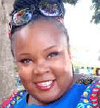 Sophia Oduol
Sophia Oduol
The root cause
of Somalia’s conflict
Contrary to belief, this conflict
has not emerged because
of some inherent Somali predisposition
toward violence,
chaos, or barbarity. Neither is
the conflict epiphenomenal,
unique to the current context.
Rather, a thorough understanding
of the conflict can
only be wrested from an
extensive historical evaluation
of traditional Somali
society and the superimposition
of Western and Eastern
influences since colonial times.
The Somali people, unlike
most of the African continent,
belong to one ethnic group and
share one religion. The unsuspecting
Westerner might therefore
assume that the formation
of a modern liberal democratic nation-state would pose little
problem for Somalia. Such has
not been the case. In Somali
society, clans (based on lineage
and kinship) provide the
fundamental basis for identity-
formation. Pre-colonial
socio-political organization
was highly decentralized, lacking
formal centralized political
institutions. But to imply that
Somali society was anarchic
is far from the truth. There
existed well-developed and
functional legal norms and
dispute settlement mechanisms.
And while isolated violent
confrontations between
clans sometimes occurred
in the struggle for extremely
scarce resources in that hostile
climate, most disputes were
peacefully settled by elders
(in Somali: guurti) assemblies.
These elders, serving as the
legitimate representatives of
their clans, sub-clans, or subsub-
clans, would typically sit
around in a room for hours,
days or months hashing out
items of contention until they
reached consensus.
Contact with the West and
East introduced European
institutions and guns, two
novelties which profoundly
damaged the traditional
Somali system. Colonialism
(British in the north, Italian
in the south) superimposed
centralized European government
and court institutions
on traditional Somali society.
John Paul Lederach attributes
“centralization in governance”
as a “root cause of Somalia's
breakdown.” At the local
level, conflicts continued to be
settled by elders (guurti), but
slowly the authority and legitimacy
of “uneducated” elders
was undermined. A new political
elite, young and Westerneducated,
was nurtured by the
colonial administration until
the formal transfer of power
at independence in 1960. Although
this account is caricatured
and oversimplified, the
point is clear: the combination
of the modem and traditional
proved a lethal mixture, effectively
thrusting Somalia into
sociopolitical purgatory. The
old structures of order and
governance had been compromised
and the new systems
were fragile and insufficiently
institutionalized. As a result,
both of these systems have
essentially collapsed. And yet,
the tension between “modern” and “traditional” would have
had much less disastrous consequences
had it not been for
the massive influx of modern
weaponry. Somalia was one
of the most blatant victims of
the Cold War. First, as a Soviet
client, and later switching over
to the American bloc, Somalia
was armed to the teeth, a
time-bomb waiting to explode.
Thus, it was not merely
the despotic and tyrannical
rule of General Siad Barre
which triggered the ruthless
struggle for power, but also
the historical context wherein
traditional peaceful dispute
settlement mechanisms had
been undermined and replaced
by rule of the gun.
Social development
The prolonged conflict,
protracted crisis and insecurity
in Somalia over more
than two decades have caused
enormous damage to the human
livelihoods and social
indicators. Somalia has some
of the worst human development
indicators in Africa. The
provision of social services
such as health, education,
water, sanitation, food and
nutrition has considerably
deteriorated.
The extended families and
clans are the major social
safety nets in the country,
with remittances received
from Somalis abroad accounting
for a large part. Remittances
are estimated to provide
up to 40% of household
income. The majority of the
population survives at a basic
subsistence level. The 2012 UN Human Development Index of
Somalia stood at 0.285 and the
country ranked 165 out of 170
countries.
The formal education
system in Somalia collapsed
in 1991. Since then, education
has been reorganized through
private means, including the
proliferation of madrasahs
(koranic schools).
With an estimated adult
literacy rate of 24%, Somalia
still ranks among those countries
with the lowest levels of
adult literacy worldwide. Local
administrations and communities
cooperate with external
donors, including the Somali
Diaspora in rehabilitating primary
and secondary schools
and have initiated campaigns
to improve women’s
education.
Somalia’s health care is
mainly limited to the urban
centers and is run by private
providers or international organizations.
Health indicators are
also among the worst in Africa,
with life expectancy estimated
at 49.7 years. Infant and child
mortality rates stand at 108.4
and 178 per 1,000 live births, respectively, against 84 and 135
for Africa. Maternal mortality
rate is also a staggering
1,400 per 100,000 live births,
compared with 683 for Africa.
Only 29% of the population
has access to improved water
sources (only 9% in rural areas)
and 23% to improved sanitation
facilities (6% in rural areas).
Conclusion
Given all these insights and
numbers, Somalia is in sociopolitical
disarray and needs to
address all challenges that are
preventing her from making a
progress in the socio-political
front. Despite the difficult
situation, Somalia is trying
very hard to overcome its
socio-political problems and
thus major political changes
have been implemented in
the last decade and more root
changes are on the way.
Let us not give up our hope
and stay resilient. The End
REFERENCES. 1. BBC, Somalia Country Profile, 2017. 2. Menkhaus, Non-State
Security Providers and Political Formation in Somalia, 2016: 9-10. 3. International
Crisis Group, Watch List 2017, 2017 and International Crisis Group, Watch List
2017 – First Update , 2017. 4. BBC, Ethiopia Withdraws Troops in Somalia over
'Lack of Support’, 26 October 2016; IRIN, Countdown to AMISOM Withdrawal:
Is Somalia Ready, 28 February 2017. 5. Insight on Conflict, Somalia: Conflict
Profile, 2014; UNDPA, Somalia, 2014; Ainte, Somalia : Legitimacy of the Provisional
Constitution, 2012; Menkhaus, State Failure, State-Building, and Prospects for a
“Functional Failed State” in Somalia, The Annals of the American Academy of Political
and Social Science, 2. 6. United Nations, Report of the Secretary General on
Somalia, 9 January 2017; International Crisis Group, Watch List 2017, 2017; UNDP,
Constitutional Review Process Kicked off in Somalia, 21 May 2017. 7. African
Development Bank Group –Country brief –Somalia 2013-2015.

Knowing is the best gift
that human beings can
have.
We enroll at university and
we want to approve everything
that they present us and
obtain our degree. For this approval
is the one that we have
to read documents and be able
to explain what they ask us to
show that we know the subject;
that activity is studying.
Studying many times is
complicated because we assume
that it is just copying a
text from here or there and
everything is ready. When
they ask us to give the demonstration
about the subject
the thing gets serious because
many times we can’t.
What is happening? What
happens is that we don’t know
what we have to do to know
the subject, explain it, write
about it, draw the conclusion
and the consequences it has.
The first thing I have to do
is write the title of my subject
well. I don’t need to see
methodology as variables and
things like that; that would
come later in the case of a
thesis.
What I’m going to study
has statement with a subject and a predicate. Something
of what I’m going to deal with
and what I should explain
about that object. The object
can be concrete, the object
can be ideal.
From here comes my bibliography
which is the material
from which I’m going to get
the information.
I can go to a library or I can
get it from the global computer
network or the internet.
An example would be figure
1: Science is an explanation
system about the reality.
I have to look for the
information of the object to
be studied: science and also
the concepts of the predicate:
system and reality.
Here I must see the best authors
on the subject. If I don’t know, by the time, we start
reading the first document
they are going to mention
names of researchers.
We may find documents
that show us the date many
years ago and we think we
can’t use them. From the first
document that we read they
will show us about the ones
that were important in that
topic and we can choose relevant
works even if they have
a lot of time that had been
published.
When we see the first document
of the subject we have
to take note of the definitions,
principles, theories and laws that mention the documents.
When we have read the
documents that seemed to me
sufficient, it’s the doing of the
index.
The index is made according
to the subject that we have.
In the example of:
Science is an explanation
system about the reality.
My index implies the
concepts of the statement: science,
system and reality and
they will go in the order of the
statement.
Chapter I.- Science.
Science with the best definitions
we have found.
The subtopics will be the activities that involve doing
science.
Chapter II.- The systems
System concept.
The sub-themes will be the
different systems that can
be given.
Chapter III.- Reality
The explanations of reality.
The sub-themes will be the
different explanations of
what reality is.
If you do thesis here would be
the demonstration, if it is an
ideal science or the checking
of the work if it is factual
science and it will go in the
same order of the chapters in
a single theme. Our conclusion
The explanation of the
activity called science, the
reasons why it is a system
and also the reasons why it
is from reality.
My conclusion has to go in the
same order as the concepts of
the work statement.
My recommendations
should also be in the same
order as the concepts in the
statement.
My work ends in the topics
indicated by the index elaborated
from my work statement
The graphs and chart should
be clarification of what the
text says where they are included and they must have
a statement that they say what
they are. I remind you that any
graph or chart must have progressive
numbering by work
or by chapter. If the graphs are
in Roman, the tables will have
Arabic numerals.
Mathematics will be the
symbolic explanation of what
the explanatory part that we
say of any of the subtopics of
my work says as long as we
are dealing with fact science
as physics.
Always a job must have
the sources from which the
information was taken; those
sources are the bibliography.
The bibliography is very
important because those who
read the work may want to see
what the authors said in the
works that helped us do it.
Always the university says
way to do the bibliography
because if each person does it
as they want there would be
no way to locate the work to
consult them.
Also in all work to explain
the issues we must put what
textually scientists have said
because whoever does a job
is not yet recognized by the
international scientific community
so that what we say is
no taken as truth.
I remind you that the cover and the introduction are made
at the end.
On the cover, the university
indicates the order of the data
to be presented, which will always
be: student’s name, major,
name of the work, name of
the university and date.
The introduction is the explanation
of the reasons why I
chose the topic, the researchers
I chose, a brief explanation
of what they say, the problems
that relate to my topic, the
specific problem of which I
am going to write, if It was difficult
to find the information
and if it is a dialectical thesis I
must write about the researchers
who agree and the opposing
researchers.
If you do your work following
these simple stages, it will
be excellent.
If you learn to study
you will have a pleasant
student life.
Remember all your
body is a learning
instrument, especially,
the resident of the
brain, the mind.
The brain is a muscle
and if you exercise it
every day his work will
be more easy.
Learn to study because
you are learning
to learn!

This study tip is not known by many people.
However, it is a very effective way to
understand what are reading and learning.
It is simple... You try to explain
to someone what you
are studying. It does not matter
if they understand or not.
When you try to explain to
someone, your mind organizes
the information in such a way
that you now understand the
information.
There is a story about a
teacher who stood in front of a
class and taught a concept. At
the end, the students said they
still did not understand. So the
teacher tried again to teach
the concept. At the end, the
students still did not understand.
Then the teacher tried a
third time to teach the concept
and as the teacher was teaching,
the teacher realized something
important and finally
understood the concept. Then
the teacher taught and the
students understood.
The story shows us that as
we try to teach something, we
develop a deeper and clearer
understanding.
Choose a friend or a family
member, and then try to explain
to them what you are
studying. Do not worry if they
understand or not. You will
understand better.
You will also see another
benefit. As you talk, your mind
is expressing ideas and integrating
more ideas. You will
find it much easier to write an
essay. Your mind will express
ideas much more easily.
So, after you study, find
someone and explain to them
what you studied. You will notice
that as you talk, you will
understand what you studied
better. You will also notice that
your mind all of sudden has
many ideas that you can write
in your essay.
The act of talking makes the
mind organize and integrate
the knowledge. You will remember
the concepts better.
You will be able to use them
more effectively too.
You truly learn a
subject when you
teach the subject.
 A learning disability, sensory processing
disorder, anxiety, ADHD
(and many others) can’t be seen. The
unique profile of a child is detected by
the child’s team (parents, teachers, pediatricians,
psychologists, etc.), but it
isn’t a given, it changes, and it doesn’t
come with a manual.
Let me share a story of a time when
I was volunteering for my daughter’s
media class when she was in first
grade (she’s in fourth grade now). This
adorable little man (with ADHD) wanted
to check out a “Curious George”
book. His paraprofessional stood
over him with a timer and barraged
him with comments like, “Choose a
book. You have 3 minutes to choose a
book. Have you chosen a book yet?”
The poor thing didn’t have a chance
to process. I could see him escalating
and it was happening at the hands of
the very support who was supposed to
help him make a choice.
... The little boy became more and
more upset. ... So I walked over to
him and got down on the floor with
him, looked him in the eye and said,
“You’re having a hard time making a
choice today?” He responded, “Yes.” I
said, “What can I do to help you?” He
responded, “I read all of the Curious
George books already, so there are no
more for me to choose from.” I asked,
“Is there another book that you would
like to read?” He said, “No.” ...
A learning disability, sensory processing
disorder, anxiety, ADHD
(and many others) can’t be seen. The
unique profile of a child is detected by
the child’s team (parents, teachers, pediatricians,
psychologists, etc.), but it
isn’t a given, it changes, and it doesn’t
come with a manual.
Let me share a story of a time when
I was volunteering for my daughter’s
media class when she was in first
grade (she’s in fourth grade now). This
adorable little man (with ADHD) wanted
to check out a “Curious George”
book. His paraprofessional stood
over him with a timer and barraged
him with comments like, “Choose a
book. You have 3 minutes to choose a
book. Have you chosen a book yet?”
The poor thing didn’t have a chance
to process. I could see him escalating
and it was happening at the hands of
the very support who was supposed to
help him make a choice.
... The little boy became more and
more upset. ... So I walked over to
him and got down on the floor with
him, looked him in the eye and said,
“You’re having a hard time making a
choice today?” He responded, “Yes.” I
said, “What can I do to help you?” He
responded, “I read all of the Curious
George books already, so there are no
more for me to choose from.” I asked,
“Is there another book that you would
like to read?” He said, “No.” ...
 Inside the concert hall of the Violin
Museum in Cremona, Italy, Antonio
de Lorenzi plays the prelude from
Bach’s Partita No. 3 on a Stradivarius
violin. Cremona is the town where master
luthier Antonio Stradivari crafted his
storied instruments three centuries ago.
But there’s no guarantee that his instrument’s
inimitable sound will survive for
centuries more, says Fausto Cacciatori,
the museum’s chief conservator. ...
Deejay Leonardo Tedeschi ... had
an idea: “To bring the sound of Stradivari
and make it accessible around
the world.” ... First, they would need to
record Stradivarius instruments .... Then
they would have to save the recordings
in a database that future composers
could use to make their own music
electronically. The Violin Museum ...
agreed. It enlisted Lorenzi and four
other world-class musicians from
Italy and the Netherlands to play four
prized instruments for posterity —the
1700 Antonio Stradivari “Stauffer”
cello, the 1727 Antonio Stradivari “Vesuvius”
violin, a 1615 “Stauffer” viola by
Girolamo Amati, and the 1734 “Prince
Doria” violin by Guarneri del Gesù.
But their task wouldn’t be to record
complete compositions ... they would
have to painstakingly record every
possible note that can be played on
each instrument. “Every possible note,
and ... every note transition,” explains
Tedeschi.
Read full text:
Inside the concert hall of the Violin
Museum in Cremona, Italy, Antonio
de Lorenzi plays the prelude from
Bach’s Partita No. 3 on a Stradivarius
violin. Cremona is the town where master
luthier Antonio Stradivari crafted his
storied instruments three centuries ago.
But there’s no guarantee that his instrument’s
inimitable sound will survive for
centuries more, says Fausto Cacciatori,
the museum’s chief conservator. ...
Deejay Leonardo Tedeschi ... had
an idea: “To bring the sound of Stradivari
and make it accessible around
the world.” ... First, they would need to
record Stradivarius instruments .... Then
they would have to save the recordings
in a database that future composers
could use to make their own music
electronically. The Violin Museum ...
agreed. It enlisted Lorenzi and four
other world-class musicians from
Italy and the Netherlands to play four
prized instruments for posterity —the
1700 Antonio Stradivari “Stauffer”
cello, the 1727 Antonio Stradivari “Vesuvius”
violin, a 1615 “Stauffer” viola by
Girolamo Amati, and the 1734 “Prince
Doria” violin by Guarneri del Gesù.
But their task wouldn’t be to record
complete compositions ... they would
have to painstakingly record every
possible note that can be played on
each instrument. “Every possible note,
and ... every note transition,” explains
Tedeschi.
Read full text:
 For the first time ever, researchers
are comprehensively sequencing
the human immune system, which is
billions of times larger than the human
genome. In a new study published
in Nature from the Human Vaccines
Project, scientists have sequenced a
key part of this vast and mysterious
system —the genes encoding the circulating
B cell receptor repertoire.
Sequencing these receptors in both
adults and infants, the scientists found
surprising overlaps that could provide
potential new antibody targets for
vaccines and therapeutics that work
across populations. As part of a large
multi-year initiative, this work seeks
to define the genetic underpinnings of
people’s ability to respond and adapt
to an immense range of disease.
Led by scientists at Vanderbilt
University Medical Center and the
San Diego Supercomputer Center, this
advancement is possible due to the
merging of biological research with
high-powered frontier supercomputing.
While the Human Genome Project
sequenced the human genome and led
to the development of novel genomics
tools, it did not tackle the size and complexity
of the human immune system.
“A continuing challenge in the human
immunology and vaccine development
fields has been that we do not
have comprehensive reference data
for what the normal healthy human
immune system looks like,” says James
E. Crowe, Jr., MD ...
For the first time ever, researchers
are comprehensively sequencing
the human immune system, which is
billions of times larger than the human
genome. In a new study published
in Nature from the Human Vaccines
Project, scientists have sequenced a
key part of this vast and mysterious
system —the genes encoding the circulating
B cell receptor repertoire.
Sequencing these receptors in both
adults and infants, the scientists found
surprising overlaps that could provide
potential new antibody targets for
vaccines and therapeutics that work
across populations. As part of a large
multi-year initiative, this work seeks
to define the genetic underpinnings of
people’s ability to respond and adapt
to an immense range of disease.
Led by scientists at Vanderbilt
University Medical Center and the
San Diego Supercomputer Center, this
advancement is possible due to the
merging of biological research with
high-powered frontier supercomputing.
While the Human Genome Project
sequenced the human genome and led
to the development of novel genomics
tools, it did not tackle the size and complexity
of the human immune system.
“A continuing challenge in the human
immunology and vaccine development
fields has been that we do not
have comprehensive reference data
for what the normal healthy human
immune system looks like,” says James
E. Crowe, Jr., MD ...
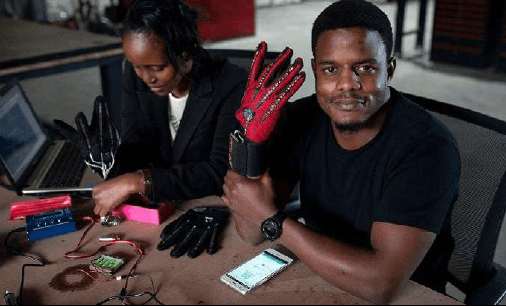 Twenty-five-year-old Kenyan engineer
and innovator, Roy Allela,
has created a set of gloves that will
ultimately allow better communication
between those who are deaf and those
who are hearing yet may not necessarily
know sign language. The Sign-IO
gloves in essence translate signed
hand movements into audible speech.
Allela's gloves feature sensors
located on each finger that detect the
positioning of each finger, including
how much each finger will bend into
a given position. The glove connects
via Bluetooth to an Android phone
which then will leverage use the textto-
speech function to provide translated
speech to the hand gestures of a
person signing.
The inspiration behind the Sign-IO
gloves comes from the personal experience
of having a young niece who is
deaf. He nor his family knows sign language
and often struggled to adequately
and consistently communicate with
her. “My niece wears the gloves, pairs
them with her phone or mine, then
starts signing. I’m able to understand
what she’s saying,” Allela shared in an
interview with The Guardian.
Allela’s vision for the gloves is
to have them placed in schools for
special needs children throughout his
home country of Kenya and then expand
from there to positively impact ...
Twenty-five-year-old Kenyan engineer
and innovator, Roy Allela,
has created a set of gloves that will
ultimately allow better communication
between those who are deaf and those
who are hearing yet may not necessarily
know sign language. The Sign-IO
gloves in essence translate signed
hand movements into audible speech.
Allela's gloves feature sensors
located on each finger that detect the
positioning of each finger, including
how much each finger will bend into
a given position. The glove connects
via Bluetooth to an Android phone
which then will leverage use the textto-
speech function to provide translated
speech to the hand gestures of a
person signing.
The inspiration behind the Sign-IO
gloves comes from the personal experience
of having a young niece who is
deaf. He nor his family knows sign language
and often struggled to adequately
and consistently communicate with
her. “My niece wears the gloves, pairs
them with her phone or mine, then
starts signing. I’m able to understand
what she’s saying,” Allela shared in an
interview with The Guardian.
Allela’s vision for the gloves is
to have them placed in schools for
special needs children throughout his
home country of Kenya and then expand
from there to positively impact ...
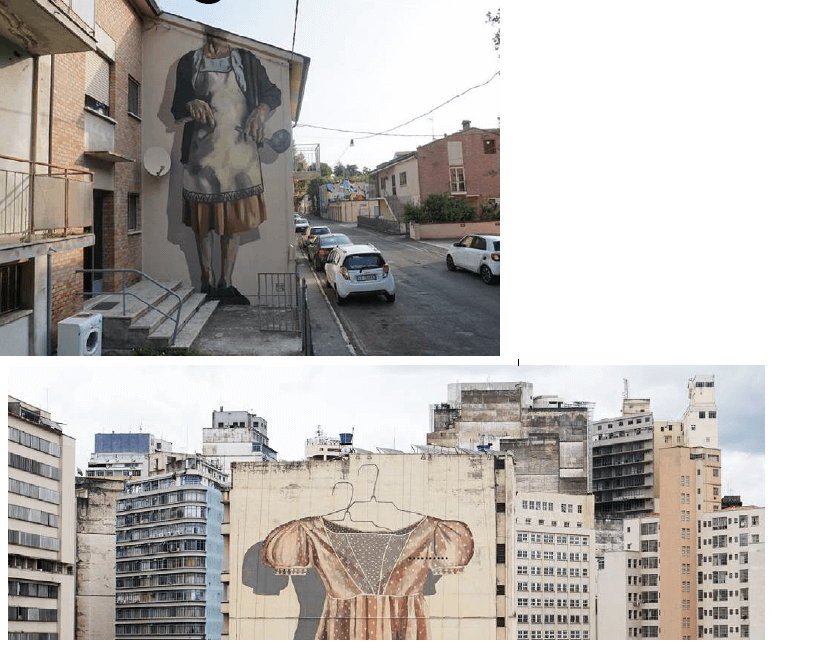
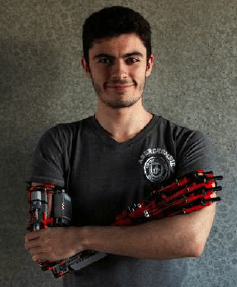
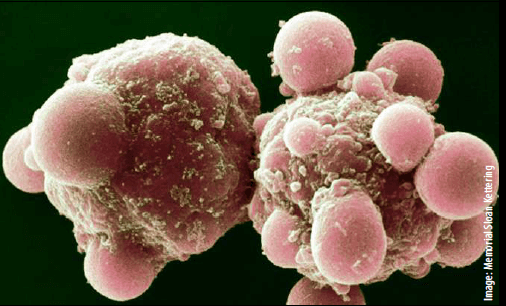 Not all damaged cells die. Some
stick around as senescent cells,
unable to divide but still able to produce
chemical signals —and they could
play a major role in the battle against
aging.
“It is thought that these cells and the
substances they produce are involved
in the process of aging,” longevity
researcher Nicolas Musi from the
University of Texas at Austin told MIT
Technology Review.
“The idea is that removing these cells
may be beneficial to promote healthy
aging and also to prevent diseases of
aging.” Based on the results of a very
early trial, there may be something to
that theory.
In January, Musi and his colleagues
published the results of a trial in which
they treated 14 patients suffering from
the fatal lung condition idiopathic
pulmonary fibrosis (IPF) with a drug
combination they believed would clear
out senescent cells. Over the course
of three weeks, the patients took
nine doses of a leukemia drug called
dasatinib and quercetin, a supplement.
By the end of the trial, the patients
were reportedly able to walk farther
than they could previously in the same
amount of time and other signs of
improved well being —all without any
serious side effects.
“Though small, this pilot study marks
a major breakthrough in how we treat
age-related diseases such as IPF,” ...
Read full text:
Not all damaged cells die. Some
stick around as senescent cells,
unable to divide but still able to produce
chemical signals —and they could
play a major role in the battle against
aging.
“It is thought that these cells and the
substances they produce are involved
in the process of aging,” longevity
researcher Nicolas Musi from the
University of Texas at Austin told MIT
Technology Review.
“The idea is that removing these cells
may be beneficial to promote healthy
aging and also to prevent diseases of
aging.” Based on the results of a very
early trial, there may be something to
that theory.
In January, Musi and his colleagues
published the results of a trial in which
they treated 14 patients suffering from
the fatal lung condition idiopathic
pulmonary fibrosis (IPF) with a drug
combination they believed would clear
out senescent cells. Over the course
of three weeks, the patients took
nine doses of a leukemia drug called
dasatinib and quercetin, a supplement.
By the end of the trial, the patients
were reportedly able to walk farther
than they could previously in the same
amount of time and other signs of
improved well being —all without any
serious side effects.
“Though small, this pilot study marks
a major breakthrough in how we treat
age-related diseases such as IPF,” ...
Read full text:
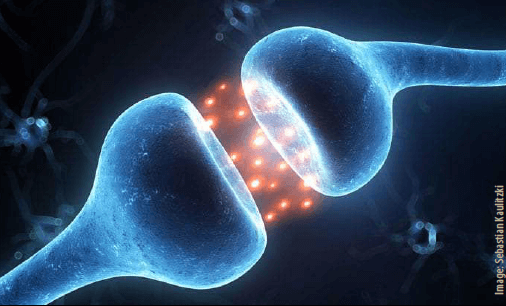 A new study has found that dopamine
—a neurotransmitter
that plays an important role in our
cognitive, emotional, and behavioral
functioning— plays a direct role in the
reward experience induced by music.
The new findings have been published
in the Proceedings of the National
Academy of Sciences.
“In everyday life, humans regularly
seek participation in highly complex
and pleasurable experiences such as
music listening, singing, or playing, that
do not seem to have any specific survival
advantage. Understanding how the
brain translates a structured sequence
of sounds, such as music, into a pleasant
and rewarding experience is thus a
challenging and fascinating question,”
said study author Laura Ferreri, an associate
professor in cognitive psychology
at Lyon University.
“In the scientific literature, there was
a lack of direct evidence showing that
dopamine function is causally related
to music-evoked pleasure. Therefore
in this study, through a pharmacological
approach, we wanted to investigate
whether dopamine, which plays a major
role in regulating pleasure experiences
and motivation to engage in certain
behaviors, plays a direct role in the experience
of pleasure induced by music.”
Read full text:
A new study has found that dopamine
—a neurotransmitter
that plays an important role in our
cognitive, emotional, and behavioral
functioning— plays a direct role in the
reward experience induced by music.
The new findings have been published
in the Proceedings of the National
Academy of Sciences.
“In everyday life, humans regularly
seek participation in highly complex
and pleasurable experiences such as
music listening, singing, or playing, that
do not seem to have any specific survival
advantage. Understanding how the
brain translates a structured sequence
of sounds, such as music, into a pleasant
and rewarding experience is thus a
challenging and fascinating question,”
said study author Laura Ferreri, an associate
professor in cognitive psychology
at Lyon University.
“In the scientific literature, there was
a lack of direct evidence showing that
dopamine function is causally related
to music-evoked pleasure. Therefore
in this study, through a pharmacological
approach, we wanted to investigate
whether dopamine, which plays a major
role in regulating pleasure experiences
and motivation to engage in certain
behaviors, plays a direct role in the experience
of pleasure induced by music.”
Read full text:

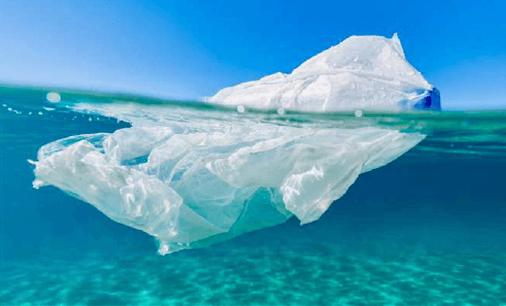 Despite a few hiccups along the
way, Australia’s plastic bag
consumption has dropped drastically.
Three months after two of the largest
supermarket chains banned plastic
grocery bags, an estimated 1.5 billion
bags have been prevented from
use, the Australian Associated Press
reported, citing the National Retail
Association.
Overall, the bans introduced by
Coles and Woolworths last summer
resulted in an 80 percent reduction in
the country’s overall use of the singleuse
item, the retail group revealed.
“Indeed, some retailers are reporting
reduction rates as high as 90 per cent,”
National Retail Association’s David
Stout told the news service.
Initially, some customers felt “bag
rage” about having to BYO-bag or fork
over 15 Australian cents (11 cents) to
buy a reusable one. Woolworths execs
blamed slumping sales on “customers
adjusting” to the plastic bag ban. Coles
even briefly backed down on the bag
ban and caught a lot of flak from environmentally
conscious shoppers for
giving away reusable plastic bags.
But the good news is that it seems
most Aussies haven’t found it too hard
to adjust to the change —and that’s
fantastic for our landfills, oceans and
the greater environment, which have
become dumping grounds for our
plastic waste. ...
Despite a few hiccups along the
way, Australia’s plastic bag
consumption has dropped drastically.
Three months after two of the largest
supermarket chains banned plastic
grocery bags, an estimated 1.5 billion
bags have been prevented from
use, the Australian Associated Press
reported, citing the National Retail
Association.
Overall, the bans introduced by
Coles and Woolworths last summer
resulted in an 80 percent reduction in
the country’s overall use of the singleuse
item, the retail group revealed.
“Indeed, some retailers are reporting
reduction rates as high as 90 per cent,”
National Retail Association’s David
Stout told the news service.
Initially, some customers felt “bag
rage” about having to BYO-bag or fork
over 15 Australian cents (11 cents) to
buy a reusable one. Woolworths execs
blamed slumping sales on “customers
adjusting” to the plastic bag ban. Coles
even briefly backed down on the bag
ban and caught a lot of flak from environmentally
conscious shoppers for
giving away reusable plastic bags.
But the good news is that it seems
most Aussies haven’t found it too hard
to adjust to the change —and that’s
fantastic for our landfills, oceans and
the greater environment, which have
become dumping grounds for our
plastic waste. ...
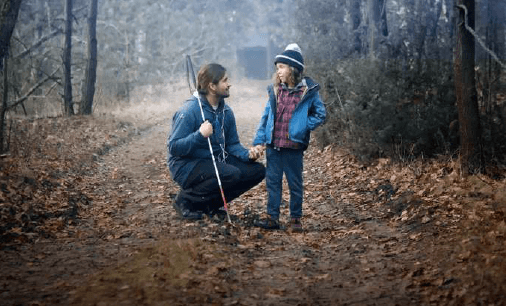 Chinese tech giant Huawei has
developed an app that uses artificial
intelligence to allow the visually
impaired to “see” the emotion on the
face of someone they are talking to by
translating it into sound.
Called Facing Emotions, the app,
developed with the Polish Blind Association,
uses the rear camera of
Huawei's Mate 20 Pro phone to read
the emotion on the face of whoever
the blind user is talking to, by analysing
their expression using artificial
intelligence (AI).
An offline machine-learning
algorithm integrated into the phone
identifies the main facial features of
the interlocutor, including eyebrows,
eyes, nose and mouth. It can then
determine the positions in relation
to each other and identify the particular
emotion. The app translates
these seven universal human emotions
–anger, fear, disgust, happiness,
sadness, surprise and contempt– into
seven distinct sounds. The detected
emotion is played through the phone’s
microphone.
The sounds corresponding to each
emotion were created by blind composer
Tomasz Bilecki. “The sounds I
wanted to create needed to be specific
for each emotion, and not distract
users from their conversations,” said
Bilecki. ...
Read full:
Chinese tech giant Huawei has
developed an app that uses artificial
intelligence to allow the visually
impaired to “see” the emotion on the
face of someone they are talking to by
translating it into sound.
Called Facing Emotions, the app,
developed with the Polish Blind Association,
uses the rear camera of
Huawei's Mate 20 Pro phone to read
the emotion on the face of whoever
the blind user is talking to, by analysing
their expression using artificial
intelligence (AI).
An offline machine-learning
algorithm integrated into the phone
identifies the main facial features of
the interlocutor, including eyebrows,
eyes, nose and mouth. It can then
determine the positions in relation
to each other and identify the particular
emotion. The app translates
these seven universal human emotions
–anger, fear, disgust, happiness,
sadness, surprise and contempt– into
seven distinct sounds. The detected
emotion is played through the phone’s
microphone.
The sounds corresponding to each
emotion were created by blind composer
Tomasz Bilecki. “The sounds I
wanted to create needed to be specific
for each emotion, and not distract
users from their conversations,” said
Bilecki. ...
Read full:
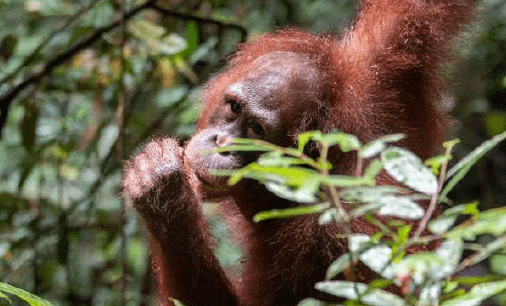 Following years of rehabilitation,
six lucky orangutans are finally
starting their new lives after being
returned to their rightful home in the
Bornean rainforest.
According to International Animal
Rescue (IAR), which cared for them
at its orangutan rescue center, this
release is especially epic because there
was a mother in the group who was
the first to have been released with a
baby, and it’s the first time a baby has
been released with a foster mom.
Maili, who was rescued from being
kept as a pet, gave birth during her
rehabilitation to baby Osin. Lady had
been rescued from a mine in 2010 and
has been undergoing rehabilitation since then. Obi, a male, had been
found near a palm oil plantation and
was kept as a pet in terrible conditions
before being rescued in 2014. Muria
had also been kept as a pet for more
than three years before she was surrendered
to IAR in 2014. According to
IAR, she was independent and quickly
began displaying her natural behaviors,
making her an ideal candidate to
take care of Zoya, an infant who had
been orphaned.
Now, after years of intensive care,
this group has finally returned to their
forest home. After a 17-hour journey ...
Following years of rehabilitation,
six lucky orangutans are finally
starting their new lives after being
returned to their rightful home in the
Bornean rainforest.
According to International Animal
Rescue (IAR), which cared for them
at its orangutan rescue center, this
release is especially epic because there
was a mother in the group who was
the first to have been released with a
baby, and it’s the first time a baby has
been released with a foster mom.
Maili, who was rescued from being
kept as a pet, gave birth during her
rehabilitation to baby Osin. Lady had
been rescued from a mine in 2010 and
has been undergoing rehabilitation since then. Obi, a male, had been
found near a palm oil plantation and
was kept as a pet in terrible conditions
before being rescued in 2014. Muria
had also been kept as a pet for more
than three years before she was surrendered
to IAR in 2014. According to
IAR, she was independent and quickly
began displaying her natural behaviors,
making her an ideal candidate to
take care of Zoya, an infant who had
been orphaned.
Now, after years of intensive care,
this group has finally returned to their
forest home. After a 17-hour journey ...

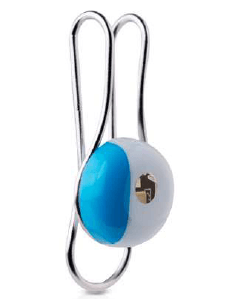 Waterproof,
battery-free LED sensor to measure
how much UV light your skin receives.
By La Roche-Posay. store.moma.org
Waterproof,
battery-free LED sensor to measure
how much UV light your skin receives.
By La Roche-Posay. store.moma.org
 A digital
readout in grams, ounces or milliliters
Great for enabling accuracy.
store.moma.org
A digital
readout in grams, ounces or milliliters
Great for enabling accuracy.
store.moma.org
 Tolls each hour
with a cuckoo on one side, and echoed
chirping / flowing river sound from a
horn on the other. store.moma.org
Tolls each hour
with a cuckoo on one side, and echoed
chirping / flowing river sound from a
horn on the other. store.moma.org
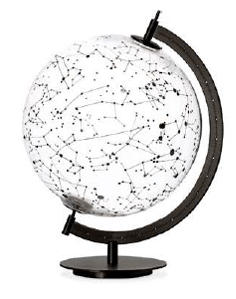 Rendered
with the outlines of the constellations
that live above us in the sky.
store.moma.org
Rendered
with the outlines of the constellations
that live above us in the sky.
store.moma.org
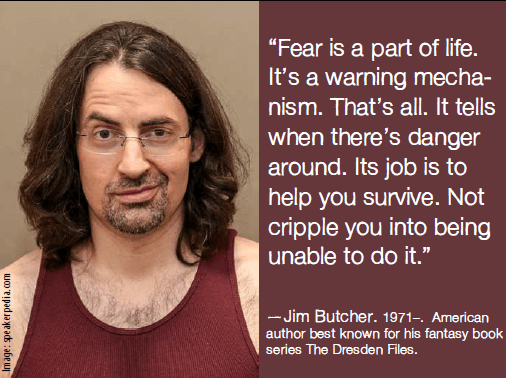
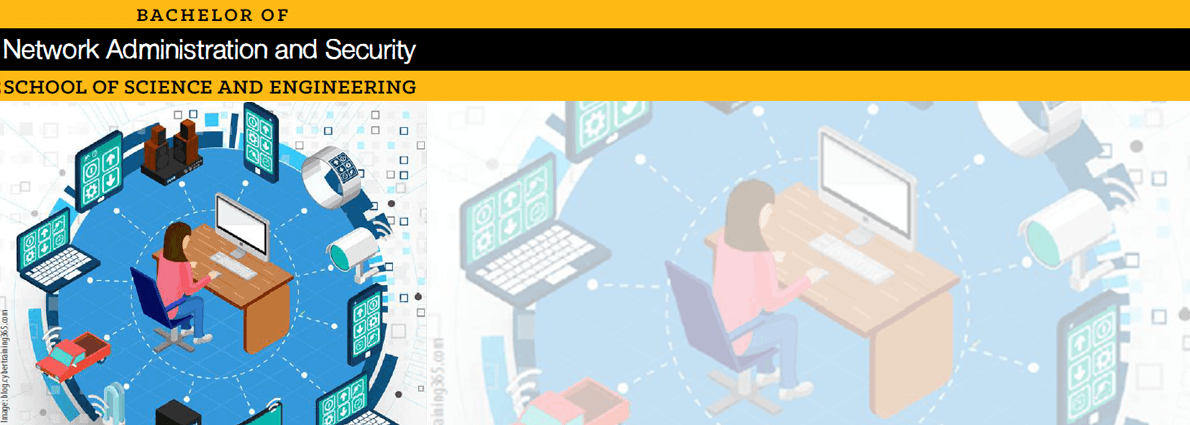 The Bachelor of Network Administration
and Security (BS) program
helps students build credentials in
the field of computer security and to
obtain knowledge essential to the field.
The emphasis will be on analyzing
security policies and evaluating risk
assessment techniques. The Bachelor
of Network Administration and
Security (BS) program is offered online
via distance learning. After evaluating
both academic record and life experience,
AIU staff working in conjunction
with Faculty and Academic Advisors
will assist students in setting up a
custom-made program, designed on
an individual basis. This flexibility to
meet student needs is seldom found
in other distance learning programs.
Our online program does not require
all students to take the same subjects/
courses, use the same books, or
learning materials. Instead, the online
Bachelor of Network Administration
and Security (BS) curriculum is designed
individually by the student and
academic advisor. It specifically addresses
strengths and weaknesses with
respect to market opportunities in the
student’s major and intended field of
work. Understanding that industry
and geographic factors should influence
the content of the curriculum
instead of a standardized one-fits-all
design is the hallmark of AIU’s unique
approach to adult education. This
philosophy addresses the dynamic and
constantly changing environment of
working professionals by helping adult
students in reaching their professional
and personal goals within the scope of
the degree program.
The Bachelor of Network Administration
and Security (BS) program
helps students build credentials in
the field of computer security and to
obtain knowledge essential to the field.
The emphasis will be on analyzing
security policies and evaluating risk
assessment techniques. The Bachelor
of Network Administration and
Security (BS) program is offered online
via distance learning. After evaluating
both academic record and life experience,
AIU staff working in conjunction
with Faculty and Academic Advisors
will assist students in setting up a
custom-made program, designed on
an individual basis. This flexibility to
meet student needs is seldom found
in other distance learning programs.
Our online program does not require
all students to take the same subjects/
courses, use the same books, or
learning materials. Instead, the online
Bachelor of Network Administration
and Security (BS) curriculum is designed
individually by the student and
academic advisor. It specifically addresses
strengths and weaknesses with
respect to market opportunities in the
student’s major and intended field of
work. Understanding that industry
and geographic factors should influence
the content of the curriculum
instead of a standardized one-fits-all
design is the hallmark of AIU’s unique
approach to adult education. This
philosophy addresses the dynamic and
constantly changing environment of
working professionals by helping adult
students in reaching their professional
and personal goals within the scope of
the degree program.
 Atlantic International University is accredited by the Accreditation Service for International
Schools, Colleges and Universities (ASIC). ASIC Accreditation is an internationally
renowned quality standard for colleges and universities. Visit ASIC’s Directory of Accredited
Colleges and Universities. ASIC is a member of CHEA International Quality Group
(CIQG) in the USA, an approved accreditation body by the Ministerial Department of the Home Office
in the UK, and is listed in the International Directory of the Council for Higher Education Accreditation
(CHEA). The University is based in the United States and was established by corporate charter in 1998.
Atlantic International University is accredited by the Accreditation Service for International
Schools, Colleges and Universities (ASIC). ASIC Accreditation is an internationally
renowned quality standard for colleges and universities. Visit ASIC’s Directory of Accredited
Colleges and Universities. ASIC is a member of CHEA International Quality Group
(CIQG) in the USA, an approved accreditation body by the Ministerial Department of the Home Office
in the UK, and is listed in the International Directory of the Council for Higher Education Accreditation
(CHEA). The University is based in the United States and was established by corporate charter in 1998.
 In some cases, accredited colleges
may not accept for transfer courses and degrees
completed at unaccredited colleges, and some
employers may require an accredited degree as
a basis for eligibility for employment. Potential
students should consider how the above may affect
their interests, AIU respects the unique rules and
regulations of each country and does not seek to
influence the respective authorities. In the event
that a prospective student wishes to carry out any
government review or process in regards to his
university degree, we recommend that the requirements
of such are explored in detail with the relevant
authorities by the prospective student as the
university does not intervene in such processes.
AIU students can be found in over 180 countries,
they actively participate and volunteer
in their communities as part of their academic
program and have allocated thousands of service
hours to diverse causes and initiatives. AIU
programs follow the standards commonly used by
colleges and universities in the United States with
regards to the following: academic program
structure, degree issued, transcript, and
other graduation documents.
AIU graduation documents can include
an apostille and authentication from the
US Department of State to facilitate their
use internationally.
In some cases, accredited colleges
may not accept for transfer courses and degrees
completed at unaccredited colleges, and some
employers may require an accredited degree as
a basis for eligibility for employment. Potential
students should consider how the above may affect
their interests, AIU respects the unique rules and
regulations of each country and does not seek to
influence the respective authorities. In the event
that a prospective student wishes to carry out any
government review or process in regards to his
university degree, we recommend that the requirements
of such are explored in detail with the relevant
authorities by the prospective student as the
university does not intervene in such processes.
AIU students can be found in over 180 countries,
they actively participate and volunteer
in their communities as part of their academic
program and have allocated thousands of service
hours to diverse causes and initiatives. AIU
programs follow the standards commonly used by
colleges and universities in the United States with
regards to the following: academic program
structure, degree issued, transcript, and
other graduation documents.
AIU graduation documents can include
an apostille and authentication from the
US Department of State to facilitate their
use internationally.
 The School of Business and Economics
allows aspiring and practicing
professionals, managers, and entrepreneurs
in the private and public sectors
to complete a self paced distance
learning degree program of the highest
academic standard.
The ultimate goal is to empower
learners and help them take advantage
of the enormous array of resources
from the world environment in order
to eliminate the current continuum of
poverty and limitations.
Degree programs are designed for
those students whose professional experience has been in business,
marketing, administration, economics,
finance and management.
The School of Business and Economics
allows aspiring and practicing
professionals, managers, and entrepreneurs
in the private and public sectors
to complete a self paced distance
learning degree program of the highest
academic standard.
The ultimate goal is to empower
learners and help them take advantage
of the enormous array of resources
from the world environment in order
to eliminate the current continuum of
poverty and limitations.
Degree programs are designed for
those students whose professional experience has been in business,
marketing, administration, economics,
finance and management.
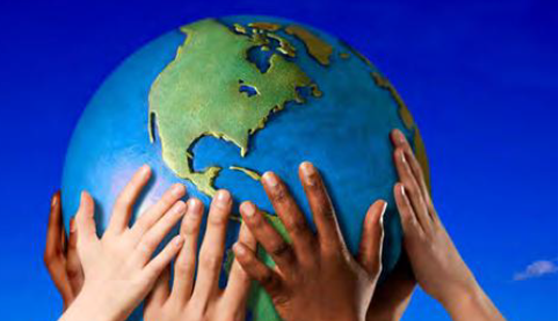 The School of Social and Human Studies
is focused on to the development of
studies which instill a core commitment
to building a society based on social and
economic justice and enhancing opportunities
for human well being.
The founding principles lie on the
basic right of education as outlined
in the Declaration of Human Rights.
We instill in our students a sense of
confidence and self reliance in their
ability to access the vast opportunities
available through information channels,
the world wide web, private, public,
nonprofit, and nongovernmental organizations in an ever expanding
global community.
Degree programs are aimed towards
those whose professional life has been
related to social and human behavior,
with the arts, or with cultural studies.
The School of Social and Human Studies
is focused on to the development of
studies which instill a core commitment
to building a society based on social and
economic justice and enhancing opportunities
for human well being.
The founding principles lie on the
basic right of education as outlined
in the Declaration of Human Rights.
We instill in our students a sense of
confidence and self reliance in their
ability to access the vast opportunities
available through information channels,
the world wide web, private, public,
nonprofit, and nongovernmental organizations in an ever expanding
global community.
Degree programs are aimed towards
those whose professional life has been
related to social and human behavior,
with the arts, or with cultural studies.
 The School of Science and Engineering
seeks to provide dynamic, integrated,
and challenging degree programs
designed for those whose experience
is in industrial research, scientific production,
engineering and the general
sciences. Our system for research and
education will keep us apace with the
twenty-first century reach scientific
advance in an environmentally and
ecologically responsible manner to allow
for the sustainability of the human
population. We will foster among our
students a demand for ethical behavior,
an appreciation for diversity, an understanding
of scientific investigation,
The School of Science and Engineering
seeks to provide dynamic, integrated,
and challenging degree programs
designed for those whose experience
is in industrial research, scientific production,
engineering and the general
sciences. Our system for research and
education will keep us apace with the
twenty-first century reach scientific
advance in an environmentally and
ecologically responsible manner to allow
for the sustainability of the human
population. We will foster among our
students a demand for ethical behavior,
an appreciation for diversity, an understanding
of scientific investigation,
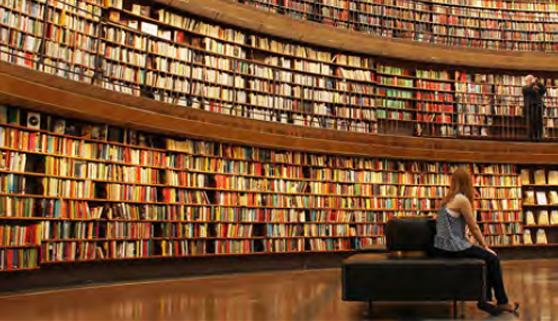 With access to a global catalog created and maintained collectively by more than
9,000 participating institutions, AIU students have secured excellent research
tools for their study programs.
With access to a global catalog created and maintained collectively by more than
9,000 participating institutions, AIU students have secured excellent research
tools for their study programs.